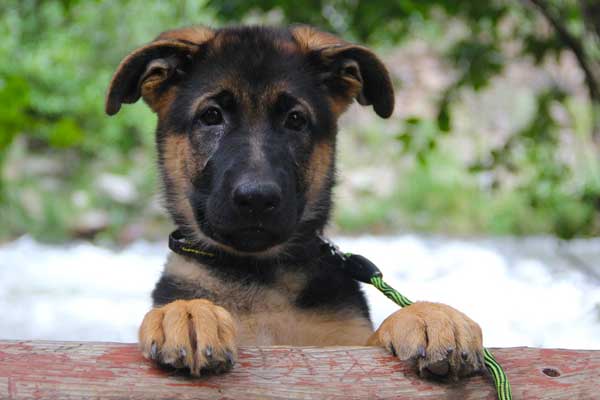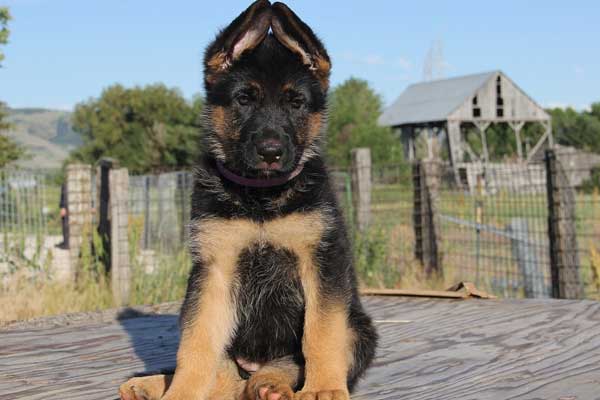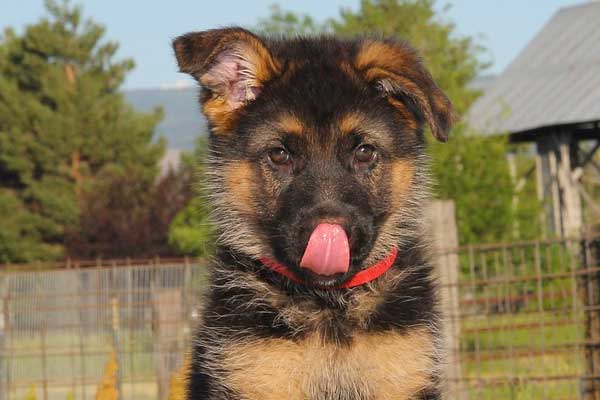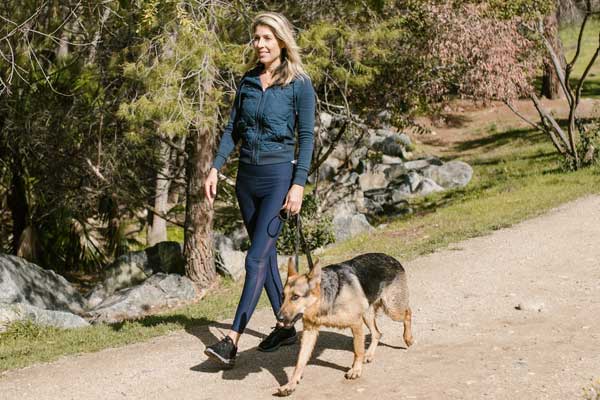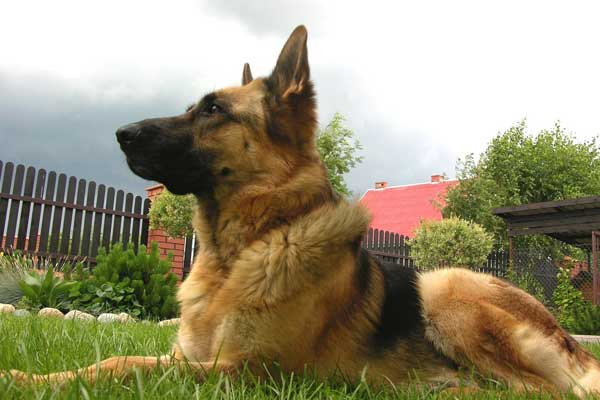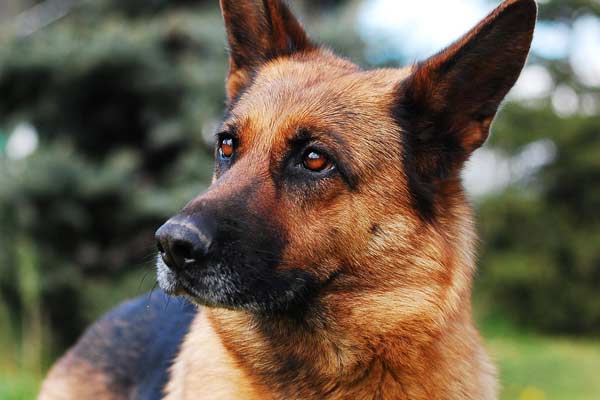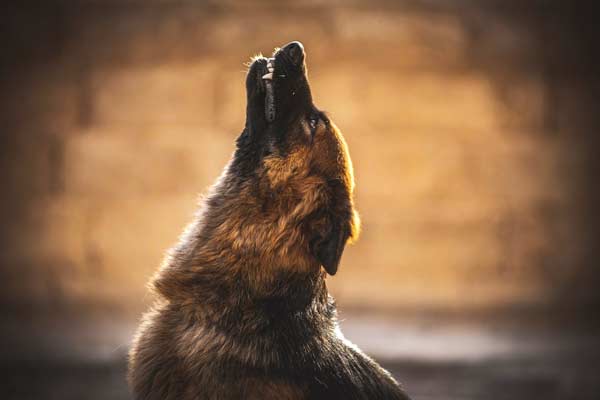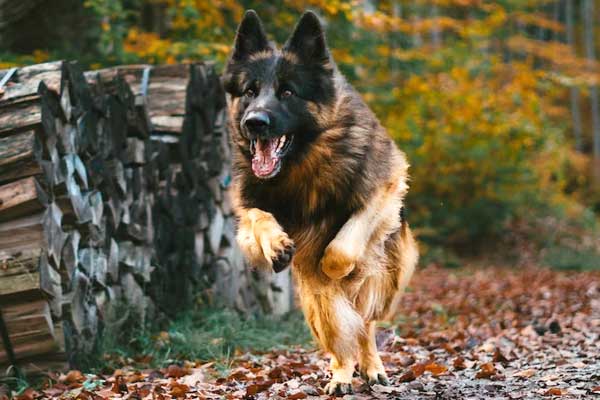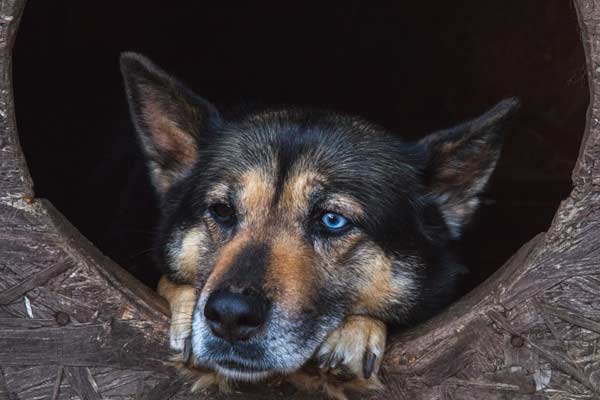How to Stop German Shepherd Puppy from Biting: Proven Techniques and Best Practices
German Shepherd puppies can be a bundle of energy and fun, but their tendency to bite can make them challenging to manage. Biting is a natural behavior for puppies as they explore the world around them with their mouths.
Still, we must teach our German Shepherds proper boundaries and etiquette when interacting with other people or us. Fortunately, there are many things you can do to stop your German Shepherd puppy from biting.
In this article, we’ll look at why German Shepherd Puppies bite so much, provide tips on reducing their biting behavior, discuss the difference between mouthing, nipping, and biting, and offer advice on creating a safe space for your pup when feeling overwhelmed.
How to Stop My German Shepherd Puppy from Biting
1. Provide Plenty of Toys
Plenty of toys for your German Shepherd puppy to play with can help eliminate the desire to bite.
Please ensure plenty of durable and safe chew toys and other items such as balls, plushies, and anything else they find interesting.
This will keep them occupied and give them something to do other than bite.
2. Partition Gates
If your German Shepherd puppy is not biting, use partition gates to separate them from any people or pets in the home when you cannot supervise.
This will create a safe space for everyone and give your puppy time to learn to be around and not bite people or other animals.
3. Quiet Approach
Use a calm and quiet approach when interacting with your German Shepherd puppy. Speak softly and do not make sudden movements.
This will help them feel less excited and less likely to bite out of fear, excitement, or frustration.
4. Engage in Exercise
Providing your German Shepherd puppy with enough exercise can help to reduce the desire to bite. Take them on regular walks, play fetch in your backyard, or have them run around indoors.
This will give them an outlet for their energy and help prevent them from biting out of boredom or overstimulation.
5. Games That Stop Biting
You can also play games with your puppy that discourage biting. For example, you could try a game of tug-of-war where you hold on to a toy, and when your puppy tries to bite, have them back away and then reward them for doing so. This will help teach them that biting is not an appropriate behavior.
6. Training Methods
Proper training is essential to helping your puppy stop biting. Enroll them in a positive reinforcement-based class or hire a professional trainer to work with you and your pup on basic commands.
This will help teach them appropriate behaviors and how to respond to cues while providing an outlet for their energy.
7. Redirect behavior
It would be best to redirect your German Shepherd puppy’s behavior when they start to bite. Give them an appropriate toy or object they can chew on and offer rewards for good behavior.
This will help teach them proper ways to express their energy and focus their attention away from biting.
8. Physically & Mentally Stimulated
Ensure your German Shepherd puppy is physically and mentally stimulated with plenty of exercises, mental stimulation, and interactive toys.
This will help to alleviate boredom and provide an outlet for their energy instead of biting.
9. Supervise
Always supervise your puppy when they are around other people or pets. This is the best way to ensure that no one gets bitten and help them learn how to interact appropriately with others.
10. Patience
Above all, have patience. Training a puppy can take time and be frustrating, but with consistency and positive reinforcement, your pup will eventually learn what is expected of them.
Why Do German Shepherd Puppies Bite So Much?
German Shepherd puppies are known to be high-energy, active, and mouthy. They often use their mouths to explore the world around them as they learn, which can lead to biting behavior.
While this might seem problematic, it’s essential to understand why puppies bite and how you can help manage this natural behavior.
Genes are a significant factor in why German Shepherds bite. They were bred to herd animals, guard property, and be alert protectors for their families.
The breed is known for its strong, protective, and working instincts, which can lead to some aggressive behavior.
These natural tendencies mean that it’s essential for owners of German Shepherd puppies to start obedience training early to help teach the appropriate puppy behavior.
High prey drive is another factor that can lead to biting Behavior in German Shepherd puppies. The breed has a strong instinct for chasing and catching small animals, which often turns into nipping at the heels of people or other pets.
To help manage this behavior, owners should provide ample toys and play time for their puppies and supervision when interacting with other animals.
Herding Dog Breed is the third factor that can contribute to biting Behavior in German Shepherds. The breed was bred for herding, which involves nipping at animals’ heels to move them around.
This instinct can carry over into a puppy’s interactions with people and other pets, leading to nips and bites. To help manage this behavior, owners should provide their puppy with appropriate outlets for this instinct, like herding toys or activities.
With proper training and socialization, German Shepherd puppies can learn to control their biting behavior and become loving and loyal companions.
Owners must be patient, consistently teach acceptable puppy behaviors, and provide adequate exercise and playtime so their puppy can release their energy appropriately.
At What Age Do German Shepherd Puppies Stop Biting?
Typically, puppies will begin teething and nipping around 3 months of age. By the time they are 7 to 8 months old, this behavior should stop as their adult teeth are fully developed and can take more pressure when playing or interacting with people.
During this time, it’s essential to focus on consistent training, positive reinforcement, and patience to ensure your German Shepherd learns acceptable behavior. Providing plenty of chew toys and treats is also essential to help them cope with teething pain.
Teach No Bite Command
The No Bite command is a great way to start when teaching your dog not to bite.
Start by having treats ready and in your hand. Your dog should be sitting in front of you and looking at you with attention. When they try to bite, say “No Bite” firmly but calmly.
If they stop, immediately give them a treat. Repeat this process multiple times until they understand the command and stop biting when they hear it.
How Strong Is a German Shepherds Bite Force
German Shepherds’ force bite is 238 PSI (pounds per square inch) which places them among the top tier of dog breeds in terms of bite strength.
This means they have the power to inflict severe damage if provoked or threatened.
Important Tip: Monitor Playtime Between Children and the German Shepherd Puppy Closely
When monitoring playtime between children and a German Shepherd puppy, it is essential to pay close attention.
While these dogs are known for their loyal, friendly nature, they are still puppies and can get too excited when playing with children. This excitement can lead to biting behavior if not monitored closely.
It is essential to teach children how to play appropriately with the dog. Teach them appropriate behavior, such as not pulling on the tail or fur and gentle petting, is critical. Make sure they understand that dogs do have limits.
When supervising playtime between your German Shepherd and the children, you should always be aware of what is going on so that you can intervene if needed.
Provide plenty of toys and games to encourage fair play between the two.
Finally, watch for signs that your puppy is becoming overwhelmed or too excited. When this happens, it’s essential to redirect their attention and energy to something else before they become aggressive.
What Is the Difference Between Mouthing, Nipping, and Biting
Mouthing, nipping, and biting are three behaviors dogs may display. While all can be undesirable, they differ in their intent and the reaction they elicit from humans.
Mouthing is when a dog puts its mouth on another person’s skin or clothing without force. This is often seen as puppy-like behavior and is not generally aggressive.
This usually happens when the dog is seeking attention or trying to play. It can also be a way for the dog to investigate something exciting or explore its environment.
Nipping, on the other hand, occurs when the dog uses their teeth to pinch or grab onto someone’s skin, clothing, or hair. This behavior is often seen as an attempt to assert dominance or control over the person being nipped.
Biting is when a dog uses their teeth to cause physical harm. Bites can be either defensive or offensive, resulting in serious injury if left unchecked.
A bite from a dog is not something to be taken lightly, and it should always be addressed with professional help.

